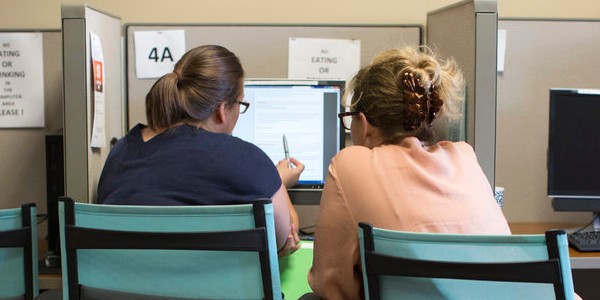Why we need to ease access to the safety net — now
MIT health economist Amy Finkelstein writes the economic devastation of the coronavirus pandemic is making benefit programs more important than ever.

Receiving Government Assistance In Ramsey County, Minn.; photo by David Kidd
"Proactively disseminating relevant information about eligibility and simplifying application processes are among evidence-based policies that policymakers should implement now to ensure that individuals are able to access these critical benefits."
— Amy Finkelstein, John & Jennie S. MacDonald Professor of Economics at MIT, and Matthew Notowidigdo, PhD '10 and Professor of Economics at Northwestern University
Research and Perspectives for the Pandemic
Main Page | Health
EXCERPT | MARCH 31, 2020
"I'm not technically unemployed, but my hours have been cut to zero. Can I still apply for unemployment benefits?
"I just lost my job and my health insurance. Can I apply for Medicaid?
"These are among the questions that workers whose livelihoods have been impacted by the coronavirus pandemic are asking. As the pandemic reverberates throughout the U.S. economy, many more will be asking the same questions. In light of the $2 trillion economic rescue plan, now is the time for policymakers to break down the barriers to accessing critically needed safety net programs.
"But confusion about eligibility, along with lack of awareness, complex program rules and complicated applications prevent many eligible individuals from accessing programs such as unemployment insurance, Medicaid and the Supplemental Nutrition Assistance Program (SNAP). There's no doubt that the need is there, as was demonstrated by the record-breaking spike in unemployment compensation claims reported last week. More than ever, we need to make sure people can access and receive these benefits."
Suggested links